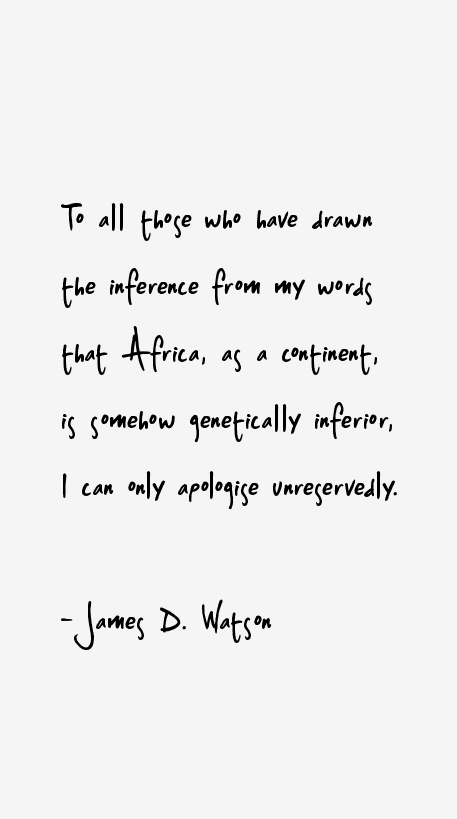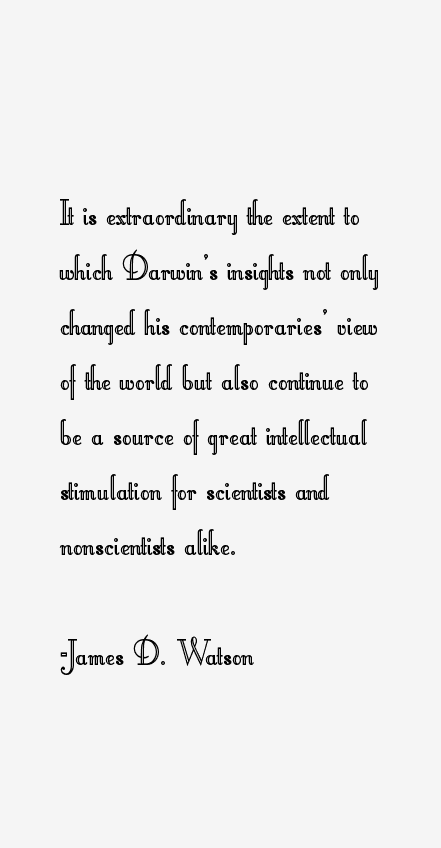James D. Watson Quotes & Sayings (Page 6)
James D. Watson quotes and sayings page 6 (scientist). Here's quote # 51 through 60 out of the 67 we have.
“Great wealth could make an enormous difference over the next decade if they sensibly support the scientific elite. Just the elite. Because the elite makes most of the progress. You should worry about people who produce really novel inventions, not pedantic hacks.”
“My wife and I have a schizophrenic son. We didn't want to accept this for 30 years, so we put him under great pressure when we shouldn't have. He just wanted to be looked after, and we didn't respect that. We tried to make him independent.”
“An idea can be tested, whereas if you have no idea, nothing can be tested and you don't understand anything. The molecule that you make when you are getting sunburned or when you eat a lot of food is part of the same molecule that contains an endorphin or an opiate. No one has ever had a hypothesis about why the two are together.”
“I never wanted to be liked by the majority of people, but there were always some people that I desperately wanted to be liked by. And so you've got to behave in a way that... the way I put it is that if you want to be a real intellectual, you've got to have someone to save you.”

“To all those who have drawn the inference from my words that Africa, as a continent, is somehow genetically inferior, I can only apologise unreservedly.”

“'Genes, Girls, and Gamow' was an attempt, even more than 'The Double Helix,' to mix science with one's personal life. With 'The Double Helix,' no one had done it before, but I thought I'd try.”
“I started doing science when I was effectively 20, a graduate student of Salvador Luria at Indiana University. And that was - you know, it took me about two years, you know, being a graduate student with Luria deciding I wanted to find the structure of DNA; that is, DNA was going to be my objective.”

“I would only once have the opportunity to let my scientific career encompass a path from the double helix to the three billion steps of the human genome.”

“It is extraordinary the extent to which Darwin's insights not only changed his contemporaries' view of the world but also continue to be a source of great intellectual stimulation for scientists and nonscientists alike.”

“I have been much blessed.”
James D. Watson Quotes Rating
No Ratings Yet
Leave A Comment
























